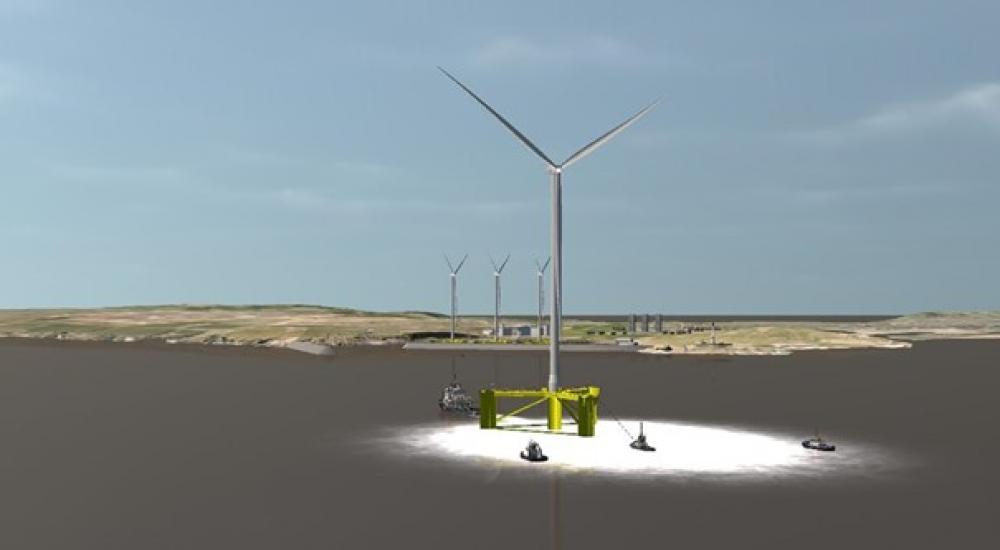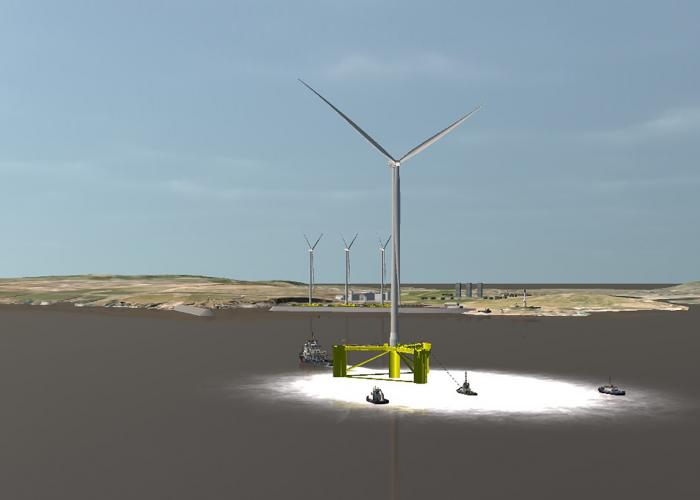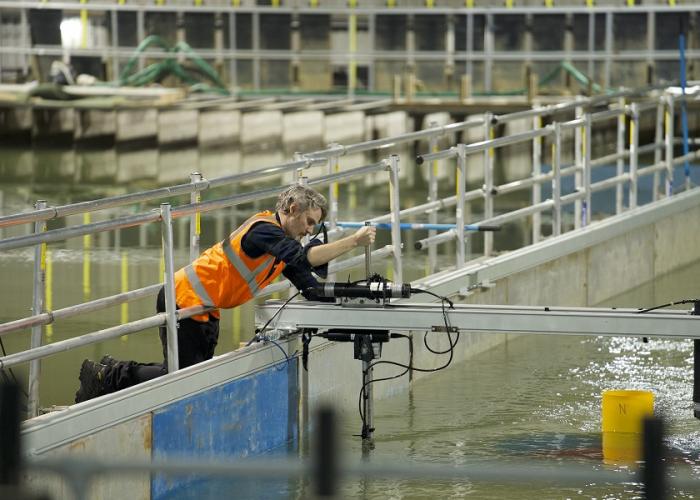Gigawatt scale FLOW won’t float without wet storage, says JIP
A review, published by TS-FLOW™ JIP, shows that temporary wet storage is crucial to the successful delivery of large-scale floating wind projects, and adds significant value to local economies. However, it also highlights that suitable locations are extremely limited, and calls for more developers, ports and yards to get involved in the initiative.

TS-FLOW™ JIP, delivered by Offshore Solutions Group and HR Wallingford, aims to deliver fully developed, independent, temporary wet storage sites in the Celtic Sea and UK North (Scotwind/Intog) leasing zones.
Wet storage is needed to provide holistic assembly and integration because the majority of UK port facilities don’t have space to store enormous FLOW base units at their quaysides. Without wet storage, schemes are unlikely to be delivered on time due to unforeseen production delays and limited weather windows for installation at wind farms.
As part of its work to facilitate wet storage, TS-FLOW™ JIP (UK North), with funding support from Crown Estate Scotland, has published its ‘lessons learned’ following extensive work with developers, regulators and port authorities. The highlights are:
- Developing wet storage areas will provide social value and support local economies. Each site could support around 1600 jobs in the project lifetime, 75% of which can be delivered locally.
- Location options for wet storage sites are extremely limited. Only nine sites of over 70 sites screened in the UK North area met the baseline criteria. Ongoing development work continues to refine, assess and define the suitable locations.
- Consenting, licensing and insurance compliance are highly complex and untested areas that will require intensive industry engagement.
- Collaboration with the offshore insurance industry is key when it comes to site development. The floating wind industry needs to demonstrate that having wet storage significantly lowers project risk and subsequent insurance premiums.
Michael Case, business development lead for clean energy at HR Wallingford, said: “It’s clear that without offshore storage, the build of gigawatt scale projects will be extremely constrained. We hope more partners will join us in our work to allow the UK’s ambitious FLOW construction programme to be realised.
Will Rowley, CEO at Offshore Solutions Group said: “With the majority of Scotwind and INTOG Developers supporting the TS-FLOW™ development process, we are making significant progress in supporting the FLOW sector delivery plans, but the journey to final operational delivery is still long, complex and challenging.”
Ben Miller, offshore wind development manager at Crown Estate Scotland said: “There is no doubt that temporary storage will be an essential part of the floating wind supply chain, as the progression of the successful ScotWind and INTOG leasing rounds gathers pace. The initial phase of this project has brought together key developers, ports, and regulators to increase understanding of the many factors and requirements that will determine the best sites around our coast. We at Crown Estate Scotland look forward to further discussions with all involved as part of our continuing work to helping enable a successful offshore wind sector in Scotland.”
Organisations interested in participating in TS-FLOW™ should contact Martin Goodlad at Offshore Solutions Group.
The full report is available here.
Want to know more?



